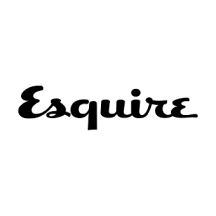Avenida de Hudi-Laran is one of the busiest roads in Dili, the capital of East Timor .
On any given day, motorbikes, cramped minibuses and yellow taxis speed past restaurants, spas and furniture supply stores.
But instead of the usual Portuguese or Tetum – the country’s two official languages – many of the establishments boast Chinese names.
The expansion of Chinese-owned businesses has grown to such an extent that most people refer to Hudi-Laran, meaning “banana complex”, as “China-Laran” now.
It’s a sign of Beijing’s increasing investment in the small country, but its level of influence appears to have its limits.
At a time when more and more Asian countries are falling into debilitating debt traps that grant China sweeping leverage, East Timor is resisting – for now.
It is one

 The Telegraph
The Telegraph
 PBS NewsHour World
PBS NewsHour World Mirror
Mirror The Spectator
The Spectator ITV News
ITV News Esquire
Esquire NFL Washington Commanders
NFL Washington Commanders AlterNet
AlterNet Nicki Swift
Nicki Swift New York Post
New York Post Planet F1
Planet F1